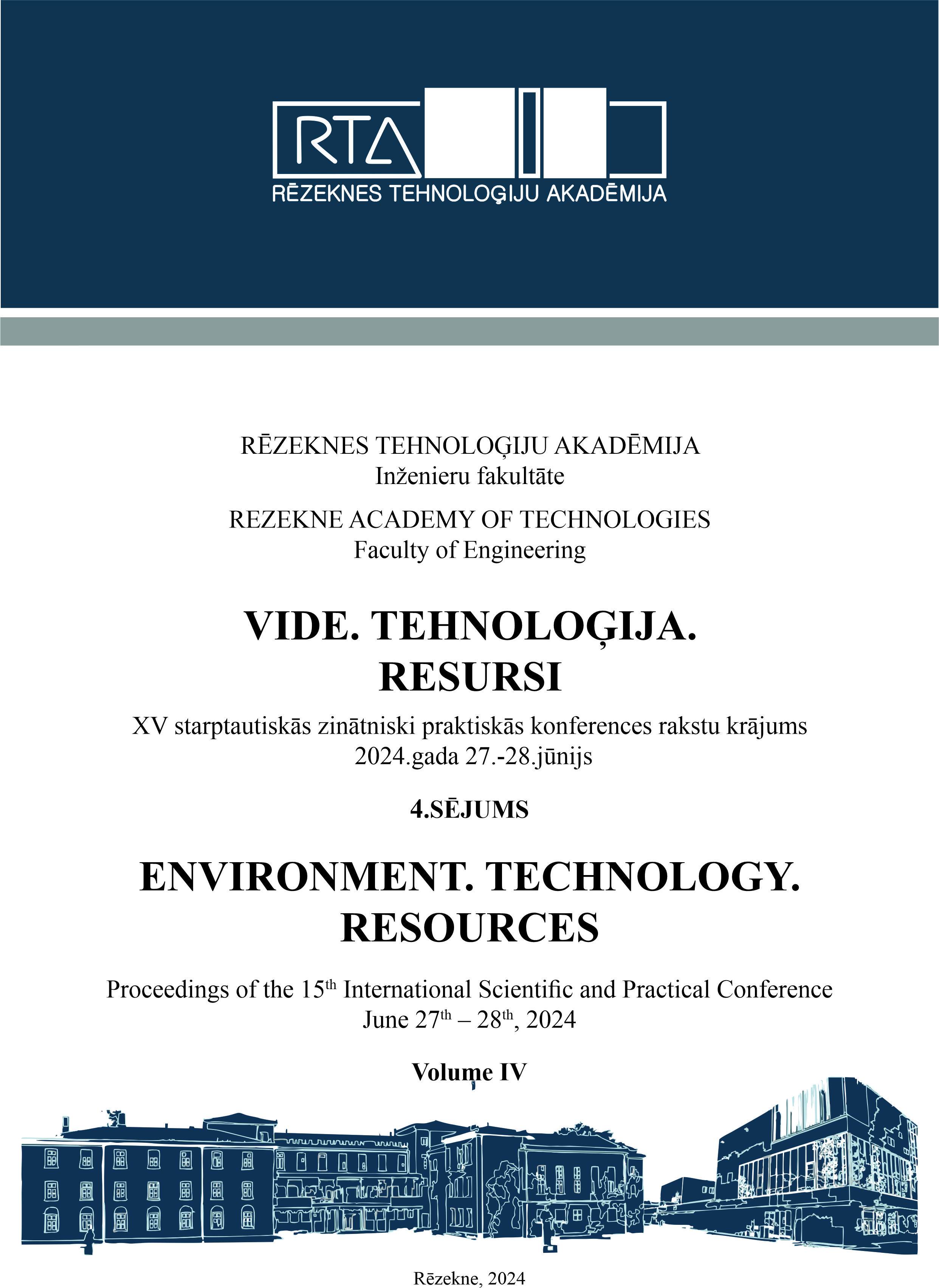APPLYING ARTIFICIAL INTELLIGENCE FOR IMPROVING SITUATIONAL AWARENESS AND THREAT MONITORING AT SEA AS KEY FACTOR FOR SUCCESS IN NAVAL OPERATION
DOI:
https://doi.org/10.17770/etr2024vol4.8224Keywords:
Artificial Intelligence, Naval operation, Situational awareness, Threat monitoringAbstract
The vast and dynamic maritime domain demands constant observance and accurate information for successful naval operations. However, traditional methods struggle to keep pace with the ever-increasing complexity and data overflow. The paper explores how Artificial Intelligence (AI) presents a transformative opportunity, significantly impacting naval operation by enhancing Situational awareness (SA) and Threat monitoring (TM). It is analyzed the impact of AI across three key areas: enhanced data processing and analysis, improved anomaly detection and predictive capabilities, and real-time decision support. By analyzing key principles, tactics, and procedures for AI implementation, it is explored the process how these capabilities can convert into practical applications and benefits. Examples like AI-powered maritime surveillance and predictive systems for naval assets demonstrate solid benefits of this technological progress. Additionally, in the paper are envisioned future operational scenarios where AI-driven autonomous systems and dynamic route optimization become commonplace. The analysis demonstrates how AI can be a critical factor in moving naval operations into a new era of efficiency and proactive threat management. However, responsible development and ethical considerations remain of paramount importance.
References
B. Auslander, K. Gupta and D. Aha, "Maritime Threat Detection using Plan Recognition," in Proc. IEEE Conference on Technologies for Homeland Security (HST) 2012, Available: https://apps.dtic.mil/sti/tr/pdf/ADA570824.pdf [Accessed February 14, 2024], DOI: 10.1109/THS.2012.6459857
Zh. Yordanov, “Monitoring systems of national sea spaces. Interaction and information exchange,” in Proc. International scientific conference "MIA 2030", Burgas, Bulgaria, 2022, p.131-139
J. Dittmer, "The state, all at sea: Interoperability and the Global Network of Navies", Sage Journals, vol. 39, no. 7, рр. 1389-1406, 2021. Available: https://journals.sagepub.com/doi/abs/10.1177/2399654418812469. [Accessed February 15, 2024]. DOI: https://doi.org/10.1177/2399654418812469
K. Steen-Tveit and B. Munkvold, “From common operational picture to common situational understanding: An analysis based on practitioner perspectives,” Journal Safety Science, Vol. 142, October 2021. [Online]. Available:Sciencedirect, https://www.sciencedirect.com/science/article/pii/S0925753521002253. [Accessed February 15, 2024]. https://doi.org/10.1016/j.ssci.2021.105381
D. Markov, “Challenges to International relations and international security in the age of Artificial intelligence,” in Proc. of an Annual University Scientific Conf., V.Levski National University, Veliko Tarnovo, Bulgaria, 2021, pp. 296-304
V. Vassilev, “The changing importance of the National maritime spaces and the implications for maritime security,“ in Proc. International Scientific Conference “105 years of knowledge in the interest of security and defense" Vol.1, Rakovski NDC, Sofia, Bulgaria, 2018, pp. 146-150
B. Johnson, "Challenges in Implementing Artificial Intelligence for Naval Warfare", Naval Engineers Journal, vol. 135, no. 1, рр. 95-103(9), March 1, 2023. Available: https://www.ingentaconnect.com/contentone/asne/nej/2023/00000135/00000001/art00020. [Accessed February 18, 2024].
B. Johnson and W. Treadway, "Artificial Intelligence – An Enabler of Naval Tactical Decision Superiority", AI Magazine, vol. 40, no. 1, рр. 63-78, Spring 2019. Available: https://ojs.aaai.org/aimagazine/index.php/aimagazine/article/view/2852. [Accessed February 17, 2024]. DOI: https://doi.org/10.1609/aimag.v40i1.2852
I. B. Tsekov, “Cyber sovereignty as a new form of state presence on the Internet,” Journal “Savremenno pravo”, Vol.1, pp.15-24, 2020
S. M. Hogge, "Robotic and Artificial Intelligence Systems for the Naval Operational Environment", Naval Engineers Journal, vol. 99, no. 4, рр. 74-86(13), July 1, 1987. Available: https://www.ingentaconnect.com/content/asne/nej/1987/00000099/00000004/art00017. [Accessed February 18, 2024]. DOI: https://doi.org/10.1111/j.1559-3584.1987.tb02159.x
A. Munir, A. Aved and E. Blasch, “Situational Awareness: Techniques, Challenges, and Prospects,” AI, vol. 3(1), pp. 55-77, Jan 2022. Available: https://www.mdpi.com/2673-2688/3/1/5 [Accessed January 25, 2024], https://doi.org/10.3390/ai3010005
R. Marinov, “Perspectives of Intelligent Technologies Based on Artificial Intelligence,” in Proc. Scientific conference “110 Years of Knowledge”, Rakovski NDC, Sofia, Bulgaria, 2022, pp. 91-98
Downloads
Published
Issue
Section
License
Copyright (c) 2024 Todor Dimitrov

This work is licensed under a Creative Commons Attribution 4.0 International License.



